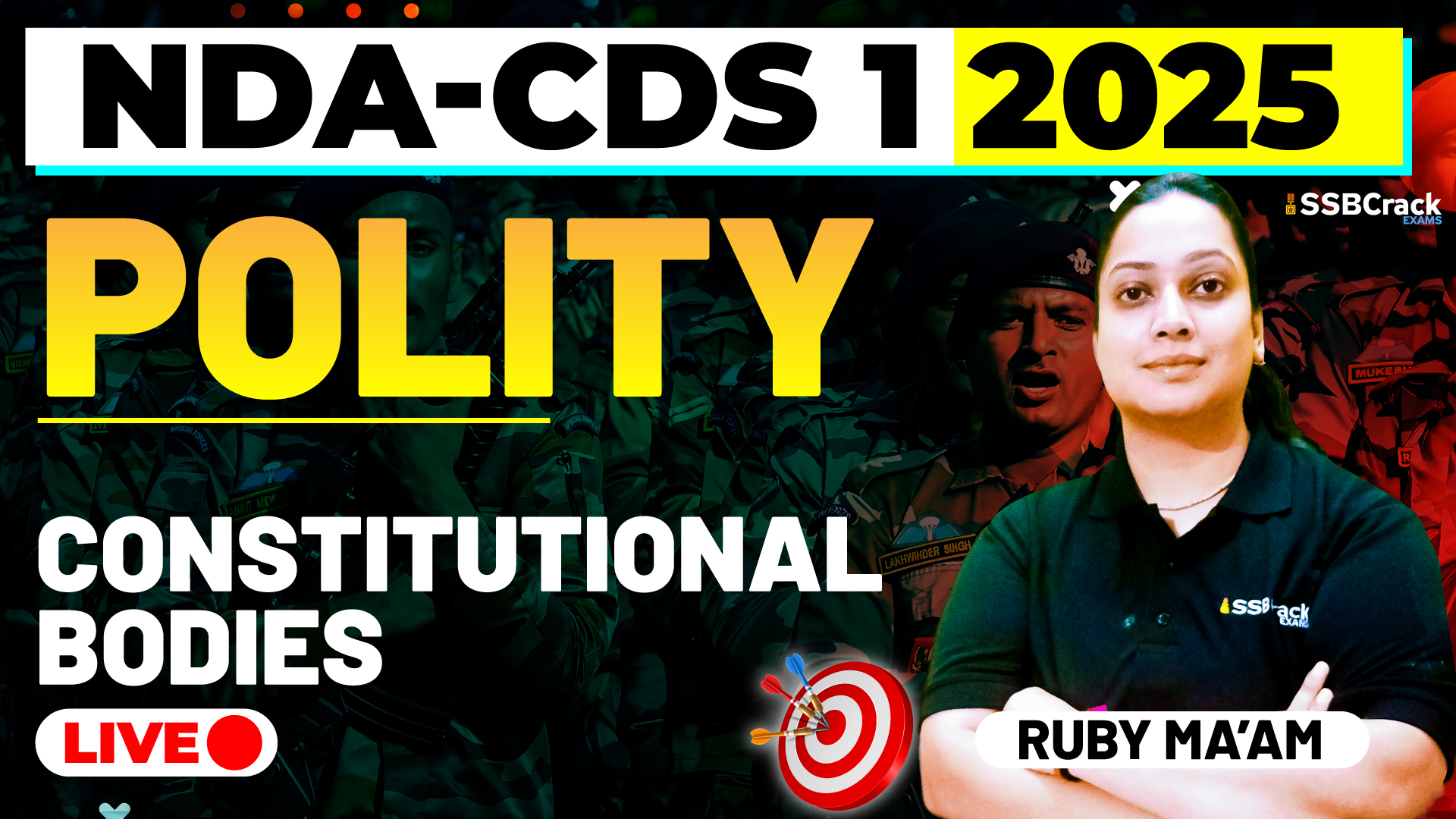When it comes to preparing for the NDA (National Defence Academy) and CDS (Combined Defence Services) exams, Polity stands out as a critical subject. One of the key areas in this section is understanding Constitutional Bodies, which are integral to India’s political and administrative framework. Here’s why a deep knowledge of these bodies is essential for aspirants and how it can benefit you in these competitive exams.
1. Understanding the Structure of Government
Constitutional Bodies are institutions established by the Constitution of India. They have specific roles in governance, ensuring that the democratic process runs smoothly. Some of the most significant Constitutional Bodies include:
- Election Commission of India (ECI)
- Union Public Service Commission (UPSC)
- Comptroller and Auditor General of India (CAG)
- Finance Commission
- Attorney General of India
- National Commission for Scheduled Castes (NCSC)
- National Commission for Scheduled Tribes (NCST)
- National Commission for Backward Classes (NCBC)
Each of these bodies has unique roles that support democracy, law, justice, transparency, and inclusivity. The NDA/CDS exams often feature questions on their functions, powers, and responsibilities, making them crucial to study.
2. Strengthening Knowledge for General Studies Paper
The NDA and CDS exams have a dedicated section on General Studies where Polity is a staple. Questions on Constitutional Bodies can range from direct factual questions (like the tenure of the Election Commissioner) to analytical ones (such as the role of the CAG in promoting transparency in public spending). By mastering Constitutional Bodies, candidates improve their accuracy and boost their scores in the General Studies paper.
3. Understanding of Governance and Accountability
The role of Constitutional Bodies goes beyond governance; they also ensure accountability and transparency in various facets of administration. For instance:
- The CAG audits government expenditures and highlights discrepancies, making it vital to fiscal responsibility.
- The UPSC ensures merit-based recruitment, promoting fairness in public services.
- The Finance Commission makes recommendations on fiscal distribution, essential for maintaining a balanced federal structure.
Knowing these bodies and their functions gives aspirants insight into how checks and balances operate in India, which is often a focus in interview questions for both NDA and CDS.
4. Essential for SSB Interviews
In the Services Selection Board (SSB) interview, a strong grasp of Constitutional Bodies reflects a candidate’s understanding of Indian governance. Officers are expected to be well-versed in how the government and its institutions function. Whether during group discussions, interviews, or current affairs rounds, candidates with this knowledge stand out as informed and capable.
5. Connection with Current Affairs
Questions about Constitutional Bodies often intersect with current events. If there are updates or significant news related to the Election Commission, Finance Commission recommendations, or CAG reports, these may become relevant in the exam. Being aware of Constitutional Bodies enables aspirants to correlate current affairs with their foundational knowledge, which is invaluable in both written exams and interviews.
6. Securing a Strong Base in Constitutional Knowledge
A solid understanding of Constitutional Bodies is indispensable for developing a broader knowledge of Indian Polity. Familiarity with these bodies builds a strong foundation for grasping advanced concepts in Indian governance and law, which is crucial not only for NDA/CDS but also for any future studies in civil services or law.
Preparation Tips for Constitutional Bodies in NDA/CDS
- Read the NCERTs: Start with NCERT textbooks on Indian Polity. They cover Constitutional Bodies in detail, especially for Class XI and XII.
- Use Laxmikanth’s “Indian Polity”: This book is a comprehensive resource on all topics related to Indian Polity, including Constitutional Bodies.
- Stay Updated on Current Affairs: Regularly follow the news and read monthly magazines or newspapers that cover current events related to governance and politics.
- Practice Previous Year Papers: Solving NDA/CDS papers will help identify question patterns on Constitutional Bodies.
- Take Mock Tests: Simulated exams will help in managing time and improving accuracy, especially in topics like Polity.
Conclusion
Constitutional Bodies are pillars of Indian democracy and play an essential role in governance, accountability, and social justice. For NDA/CDS aspirants, understanding these institutions is more than academic—it’s about building a foundation of knowledge that prepares them to serve as officers who uphold the Constitution. In mastering this topic, candidates not only increase their chances of success in the exams but also grow into well-rounded, informed individuals equipped to handle responsibilities as future leaders.







